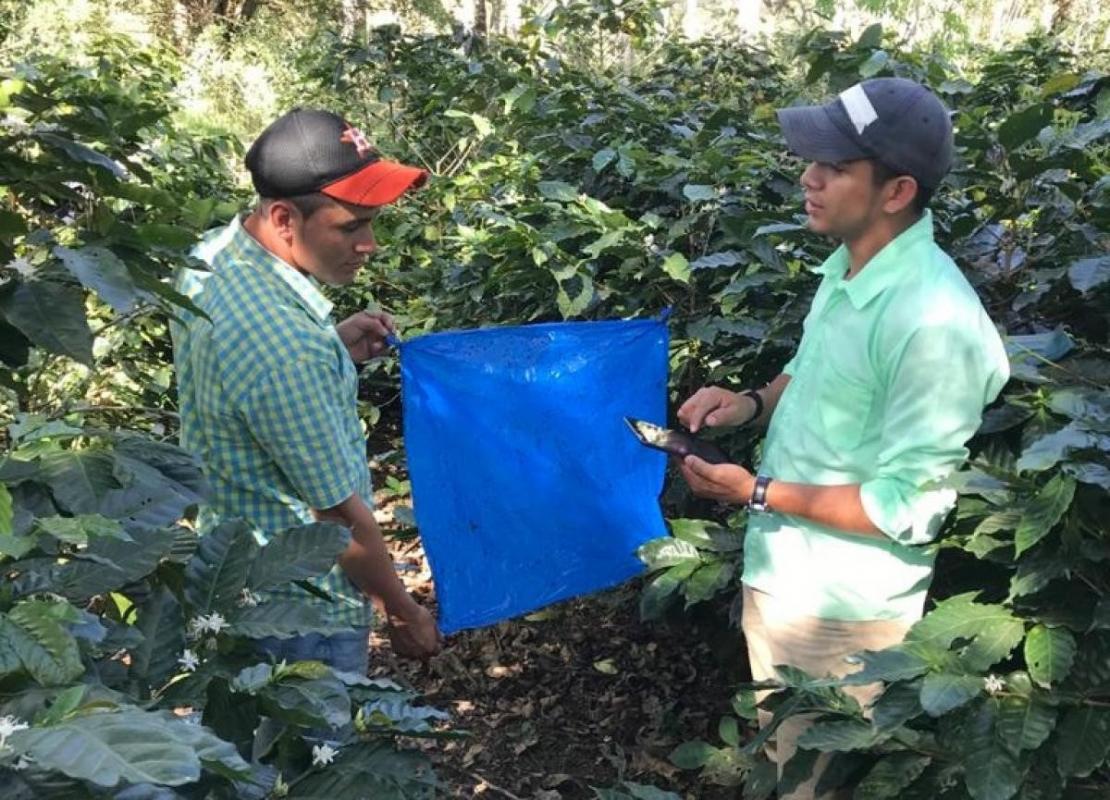- Home
- Worldwide
- CIRAD worldwide
- Projects
- ECOFFEE R&D
Viability and sustainability of coffee production - ECOFFEE

Coffee farmer survey in Nicaragua on pesticide uses, and installation of insect traps for biodiversity studies © M. Bordeaux, CIRAD
Issues
Intensive and prolonged use of pesticides, particularly herbicides, fungicides and insecticides in farming, raises concerns for the environment, its biodiversity and the people who live there. The impact on ecosystems of these practices in coffee growing have yet to be adequately investigated. The ECOFFEE R&D initiative brings together the expertise and resources of some major scientific and industrial actors in the coffee value chain in a common goal: gradually reduce pesticide use in coffee farming. By way of different research and development projects, the prime aim of the initiative is to set up an international network of trial plots, which will house experiments to assess zero-pesticide biological control methods against coffee parasites. Beyond conducting trials, the members of ECOFFEE R&D will place particular emphasis on disseminating knowledge, communication and the adoption of innovations by farmers. The initiative, which is intentionally precompetitive (i.e., without market stakes), hopes to achieve a strong impact in the field for this research and innovation initiative, for the benefit of all stakeholders in the value chain.
Description
The initiative will involve an international audit to assess current pesticide use and the practices of coffee farmers in Brazil, Vietnam, Mexico and Nicaragua, through exhaustive studies to assess pesticide use in coffee farming. These unprecedented studies, undertaken by research partners with strong on-the-ground support from industrial partners, were launched in March 2021 in four coffee producing countries: Brazil and Vietnam, the top two coffee-producing countries in the world, Mexico and Nicaragua.
Farmer surveys will be combined with the analysis of over 600 pesticide residues in coffee cherries, green coffee and soils, along with biodiversity studies (insect populations).
Expected changes
ECOFFEE R&D’s baseline studies will compare the different cropping systems found in the target countries. Precise knowledge of pesticide use in coffee farming will thus emerge from the initiative and will be widely disseminated via scientific publications. These results will also serve as a reference for assessing the potential of alternative solutions to chemical pesticides, to be tested at later stages in the ECOFFEE international network.























